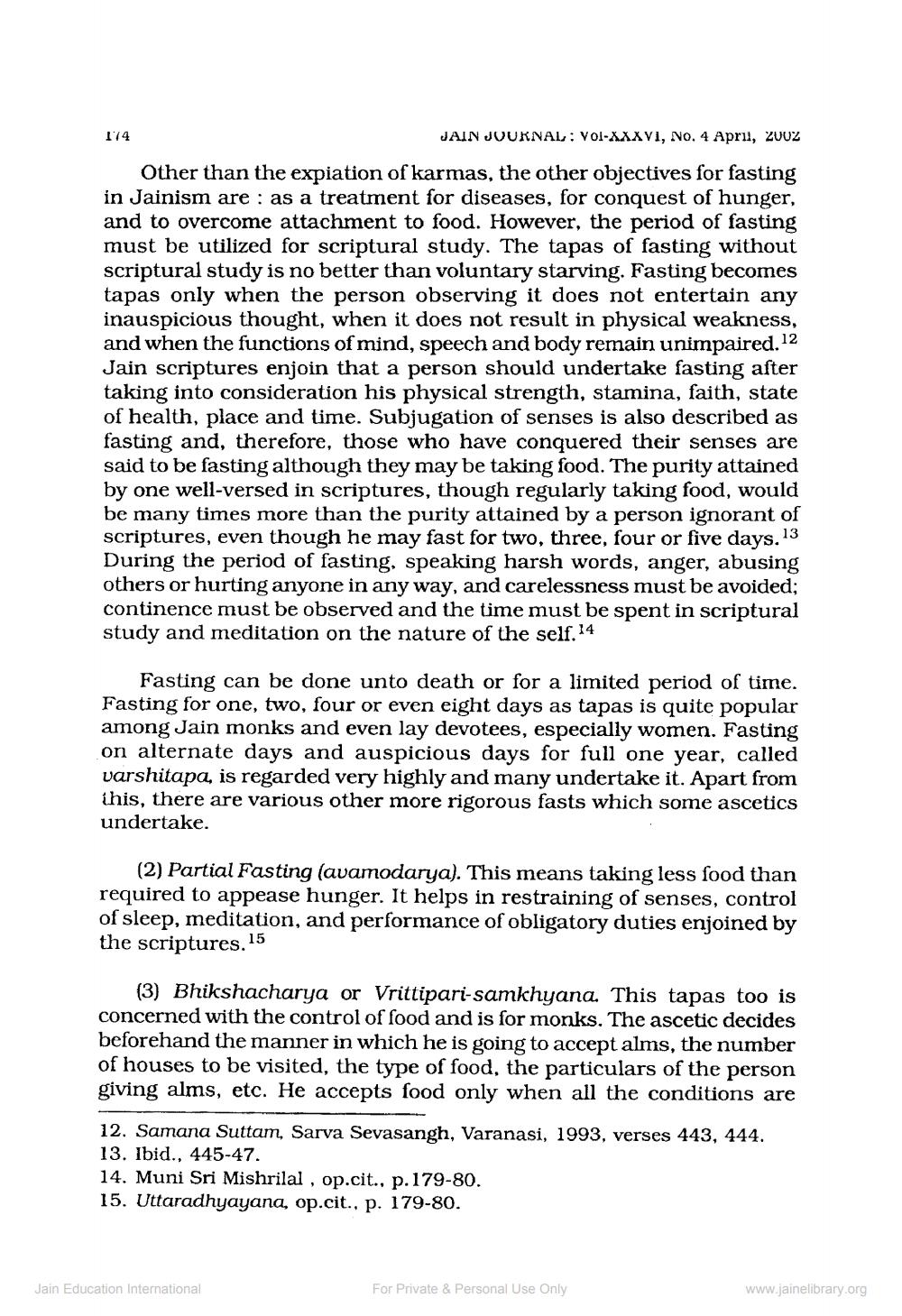________________
JAIN JOURNAL: Vol-XXXVI, No. 4 April, ZUUZ
Other than the expiation of karmas, the other objectives for fasting in Jainism are: as a treatment for diseases, for conquest of hunger, and to overcome attachment to food. However, the period of fasting must be utilized for scriptural study. The tapas of fasting without scriptural study is no better than voluntary starving. Fasting becomes tapas only when the person observing it does not entertain any inauspicious thought, when it does not result in physical weakness, and when the functions of mind, speech and body remain unimpaired.12 Jain scriptures enjoin that a person should undertake fasting after taking into consideration his physical strength, stamina, faith, state of health, place and time. Subjugation of senses is also described as fasting and, therefore, those who have conquered their senses are said to be fasting although they may be taking food. The purity attained by one well-versed in scriptures, though regularly taking food, would be many times more than the purity attained by a person ignorant of scriptures, even though he may fast for two, three, four or five days. 13 During the period of fasting, speaking harsh words, anger, abusing others or hurting anyone in any way, and carelessness must be avoided; continence must be observed and the time must be spent in scriptural study and meditation on the nature of the self.14
174
Fasting can be done unto death or for a limited period of time. Fasting for one, two, four or even eight days as tapas is quite popular among Jain monks and even lay devotees, especially women. Fasting on alternate days and auspicious days for full one year, called varshitapa, is regarded very highly and many undertake it. Apart from this, there are various other more rigorous fasts which some ascetics undertake.
(2) Partial Fasting (avamodarya). This means taking less food than required to appease hunger. It helps in restraining of senses, control of sleep, meditation, and performance of obligatory duties enjoined by the scriptures.
15
(3) Bhikshacharya or Vrittipari-samkhyana. This tapas too is concerned with the control of food and is for monks. The ascetic decides beforehand the manner in which he is going to accept alms, the number of houses to be visited, the type of food, the particulars of the person giving alms, etc. He accepts food only when all the conditions are
12. Samana Suttam, Sarva Sevasangh, Varanasi, 1993, verses 443, 444. 13. Ibid., 445-47.
14. Muni Sri Mishrilal, op. cit., p. 179-80.
15. Uttaradhyayana, op.cit., p. 179-80.
Jain Education International
For Private & Personal Use Only
www.jainelibrary.org




